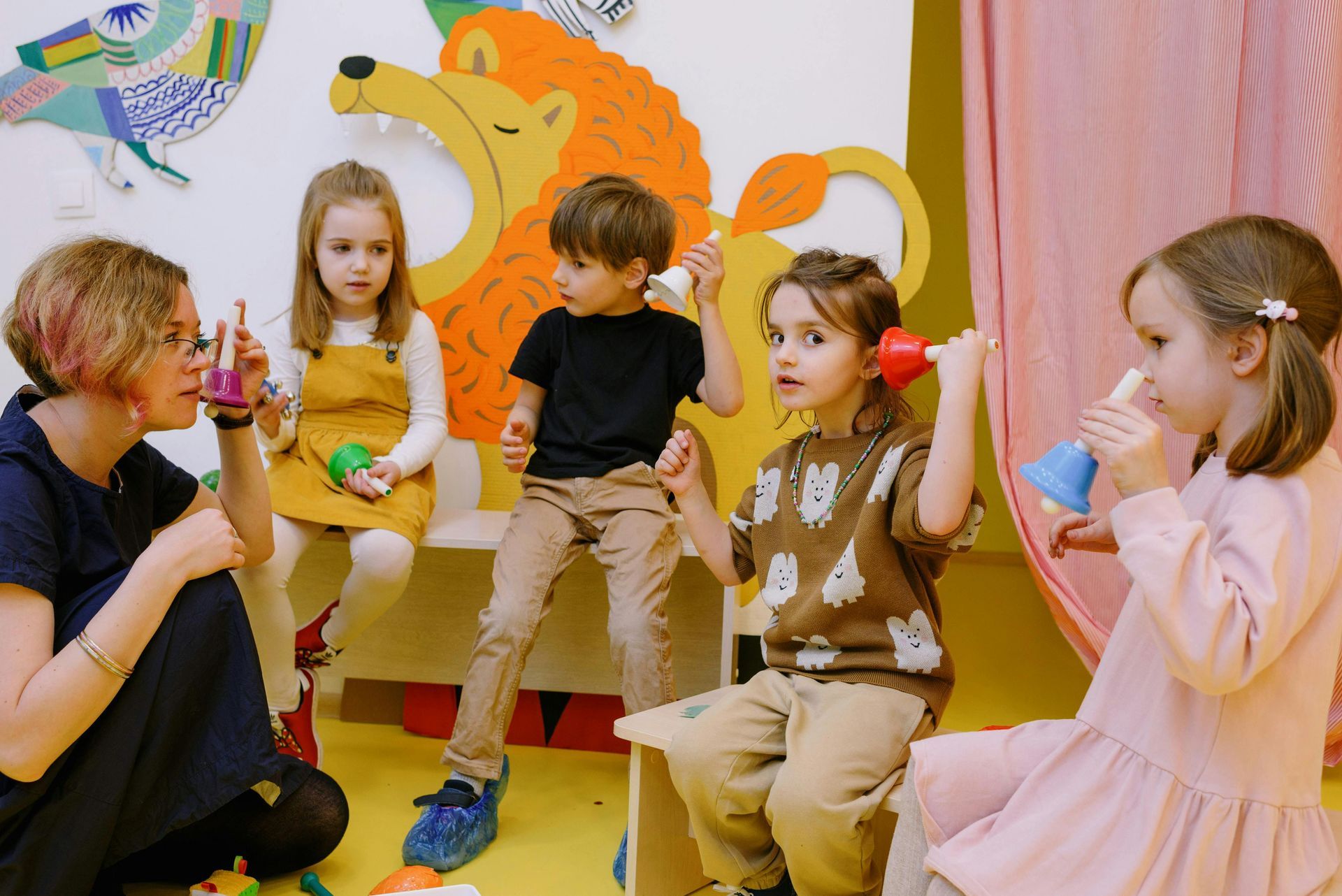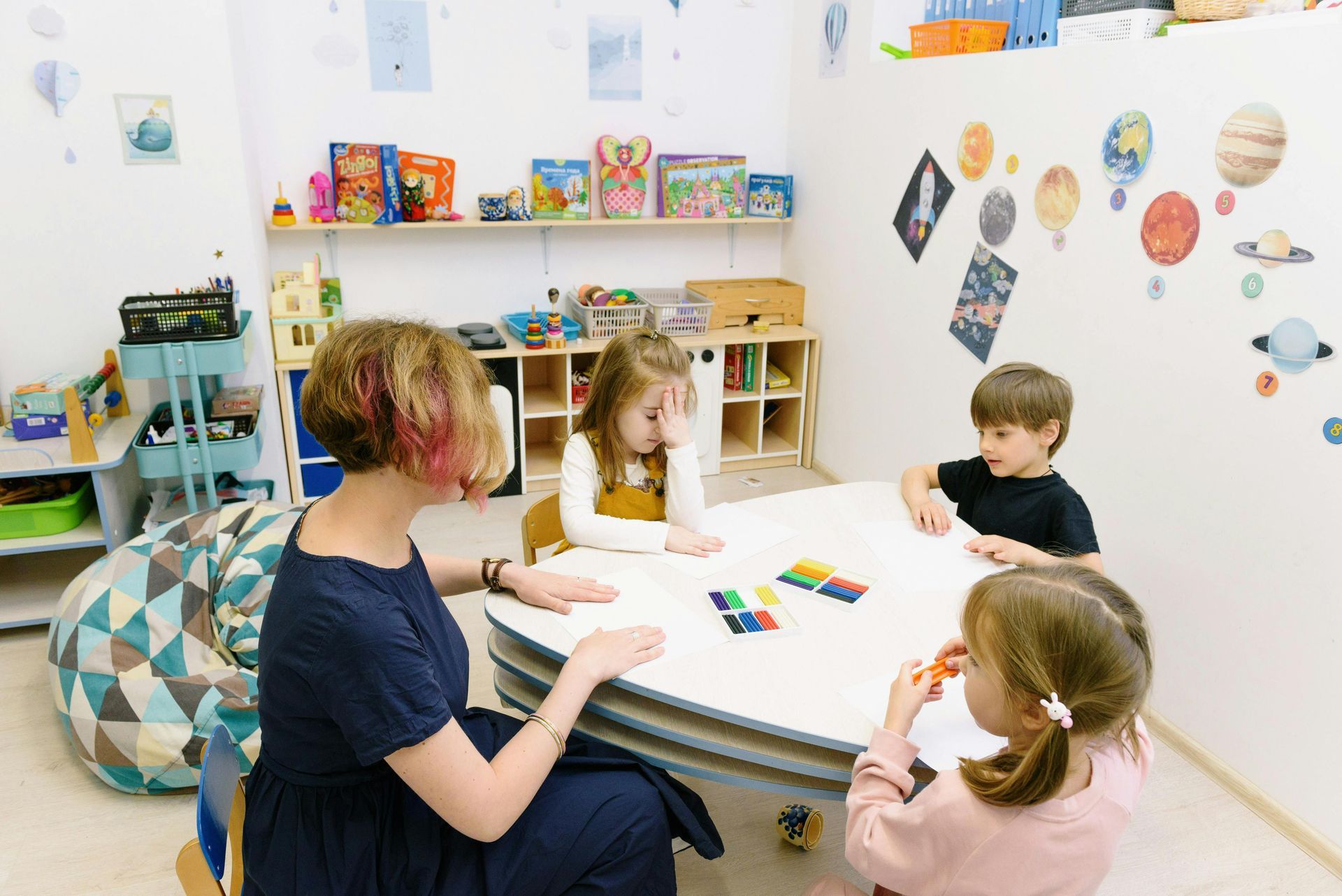Fostering Emotional Resilience in Early Childhood: A Key to Lifelong Success

Emotional resilience—the ability to adapt and thrive in the face of challenges—is one of the most important life skills a child can develop. In the early years, children are still learning how to navigate their emotions, handle stress, and overcome obstacles. At Drop of Love Orlando, we recognize the importance of nurturing emotional resilience in children from a young age. This blog post will explore how emotional resilience is developed in early childhood, the key factors that contribute to it, and the long-term benefits it offers.
Why Emotional Resilience is Important
Emotional resilience is not just about “bouncing back” from adversity; it’s about the ability to manage emotions, maintain a positive outlook, and persist through challenges. For children, emotional resilience is the foundation for mental health, relationship building, and overall well-being. Here’s why emotional resilience is so important:
1. Helps Children Cope with Stress
Stress is a natural part of life, and children encounter various stressors, such as new experiences, social interactions, or changes in their environment. Developing emotional resilience helps children cope with stress effectively, allowing them to stay calm and positive in challenging situations. Resilient children are better equipped to manage fear, anxiety, and frustration, which is crucial for their emotional health.
2. Encourages Problem-Solving and Critical Thinking
When children are resilient, they approach problems with a mindset of perseverance and determination. They learn to think critically, assess situations, and come up with solutions rather than giving up. Emotional resilience encourages children to see challenges as opportunities for growth, fostering a problem-solving attitude that serves them well throughout their lives.
3. Strengthens Social Skills and Relationships
Emotional resilience plays a key role in how children interact with others. Resilient children are more likely to have positive relationships because they are better at managing their emotions and handling conflicts. They learn to communicate effectively, empathize with others, and build strong connections with peers, teachers, and family members.
4. Promotes Long-Term Mental Health
Developing emotional resilience in childhood contributes to long-term mental health. Children who are taught how to regulate their emotions, understand their feelings, and cope with challenges are less likely to experience anxiety, depression, or emotional difficulties as they grow older. Emotional resilience provides a foundation for lifelong mental well-being and emotional stability.
How Drop of Love Orlando Promotes Emotional Resilience
At Drop of Love Orlando, we prioritize emotional resilience as an essential part of our early childhood curriculum. Here’s how we help children develop the emotional strength they need to thrive:
1. Teaching Emotional Awareness
One of the first steps in building emotional resilience is helping children recognize and label their emotions. At Drop of Love Orlando, we use age-appropriate activities to teach children about different emotions such as happiness, sadness, anger, and fear. By naming these feelings, children gain better control over their emotions and learn to express themselves in a healthy way.
2. Encouraging Positive Self-Talk
Children who practice positive self-talk are more likely to bounce back from setbacks and maintain a resilient mindset. We encourage children to use affirming statements like “I can try again” or “I’m proud of myself” when they face challenges. These phrases reinforce the belief that failure is just a stepping stone to success and that perseverance leads to growth.
3. Modeling Resilience
Children learn by observing the adults around them. Our educators at Drop of Love Orlando model emotional resilience through their own actions. When faced with challenges, our teachers remain calm, problem-solve, and maintain a positive attitude. By demonstrating resilience, we show children that it’s okay to experience setbacks and that the key to success is staying persistent.
4. Providing a Supportive Environment
A supportive and nurturing environment is essential for emotional resilience. At Drop of Love Orlando, we create a safe space where children feel comfortable expressing their emotions, trying new things, and making mistakes. Our teachers offer guidance and reassurance, helping children understand that it’s okay to feel upset or frustrated and that they have the tools to cope with these feelings.
5. Encouraging Social-Emotional Learning (SEL)
Social-emotional learning is an important part of our curriculum. We incorporate activities that promote empathy, communication, and problem-solving. Through group activities, storytelling, and role-playing, children learn how to manage their emotions, understand others’ feelings, and work together to solve problems.
Practical Tips for Fostering Emotional Resilience at Home
While early childhood education plays a crucial role in developing emotional resilience, parents and caregivers also have a significant impact. Here are a few tips for fostering emotional resilience at home:
1. Create a Safe Emotional Environment
Encourage open communication at home by allowing children to express their feelings without judgment. Create a safe environment where children feel comfortable talking about their emotions, whether they are happy, sad, frustrated, or excited. Validate their feelings and provide support as they navigate their emotions.
2. Praise Effort, Not Just Results
Resilience is about the process, not just the outcome. Praise your child’s effort rather than focusing solely on the results. When children feel recognized for their hard work and determination, they are more likely to continue trying, even when things don’t go as planned.
3. Model Resilience in Your Own Life
Children are always watching their parents. When you encounter challenges, demonstrate emotional resilience by staying calm, solving problems, and maintaining a positive attitude. Share with your child how you deal with setbacks and talk about the lessons you’ve learned from difficult experiences.
4. Encourage Problem-Solving
When your child faces a challenge, guide them through the process of problem-solving. Ask questions like, “What do you think we can do next?” or “What do you think might help solve this problem?” Encourage them to come up with their own solutions, giving them a sense of control and confidence in their ability to handle difficulties.
5. Foster Independence
Give your child opportunities to make choices and take responsibility for their actions. When children have the chance to make decisions and experience the consequences, they learn how to navigate the ups and downs of life. Encourage independence while offering guidance and support along the way.
The Long-Term Benefits of Emotional Resilience
Developing emotional resilience in early childhood provides long-term benefits that last well into adulthood. Here are some of the key advantages of emotional resilience:
1. Improved Mental Health
Children who develop emotional resilience are better equipped to handle stress, anxiety, and other mental health challenges throughout their lives. They are more likely to maintain a positive outlook, manage difficult emotions, and seek help when needed.
2. Stronger Relationships
Resilient individuals tend to have stronger relationships because they are better at communicating, empathizing, and resolving conflicts. They approach challenges in relationships with a positive attitude and a willingness to work through issues.
3. Academic Success
Emotional resilience plays a key role in academic success. Children who can persevere through challenges and maintain a positive attitude are more likely to perform well in school. They are also more likely to develop a love for learning, which fosters lifelong educational success.
4. Greater Career Success
Emotional resilience is crucial in the workplace. Individuals who can manage stress, work through setbacks, and maintain a positive attitude are more likely to thrive in their careers. They are also better equipped to handle challenges, adapt to change, and collaborate with others.
Discover how positive reinforcement and emotional resilience can shape a child's future success by reading these valuable blog posts: The Power of Positive Reinforcement: Encouraging Good Behavior in Young Children and Raising Emotionally Resilient Children: Building the Foundation for Lifelong Success.
Conclusion: Building a Strong Emotional Foundation for Lifelong Success
At Drop of Love Orlando, we believe that emotional resilience is one of the most important skills a child can develop. By fostering emotional resilience through positive reinforcement, social-emotional learning, and a supportive environment, we are helping children build a strong foundation for lifelong success.
We are committed to providing children with the tools they need to navigate the challenges of life with confidence, empathy, and perseverance. Together, we are nurturing the next generation of emotionally resilient individuals who will thrive in all aspects of their lives










